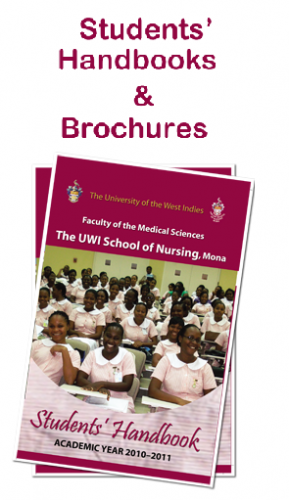The UWI BScN degree is offered at:
- The UWI Mona Campus
- The UWI Western Jamaica Campus (WJC)
- Three (3) Tertiary Level Institutions
This programme of theory and clinical practice consists of 120 credits and is offered in eight (8) semesters and (1) summer. Candidates successfully completing this BScN programme will be eligible to apply to sit the Regional Examination for Nurse Registration (RENR). This will enable the individual to practice nursing in Jamaica and other CARICOM Countries.
The purpose of the programme is to provide the educational and experiential foundation for entry level professional nursing practice and to provide a base on which to build a career through graduate-level study in specialist areas such as midwifery, nurse practitioner, clinical specialists and nurse administrator and educator. The aim of the curriculum is to prepare professional nurses who possess leadership skills and have the necessary competencies to meet the demands in a growing and changing health care system.
The programme will prepare graduates who will:
- be eligible to apply for entry to General Registry for Nurses of the Nursing Council of Jamaica or any other nursing legislative body in the CARICOM region;
- display professional responsibility and accountability for safe nursing care to individuals, families and communities along the wellness-illness continuum and at any stage of the life cycle;
- apply evidence-based nursing care to clients/patients and their families at any stage of the life cycle, in primary, secondary, tertiary or extended care facilities with respect for individuals rights.
Application forms are available at the UWI Admissions Office and at any of the other campuses. Completed applications with the requirements stated are to be submitted the Senior Assistant Registrar, Admissions Office, The University of the West Indies, Mona, Kingston 7, Jamaica
